 photo from bryonnbain.com
photo from bryonnbain.comBryonn Bain, who has joined the National Urban Alliance as its Artist-in-Residence, is Brooklyn's Famed Spoken Word Poet. Bain currently teaches at Columbia University and at Riker's Island Prison. Bain first came into the national spotlight when he was falsely imprisoned by the NYPD during his second year at Harvard Law School. Following his false imprisonment, Bain wrote the article "Walking While Black" for The Village Voice, and that article earned him a Mike Wallace interview on 60 Minutes.
For more information about Bryonn, visit his website bryonnbain.com.
Bain proposes that it is important for teachers today to connect to teenagers through music, and since the music that many teens, regardless of their cultural backgrounds, listens to is Hip Hop, teachers should be incorporating Hip Hop into their lessons. In fact, Bain asserts that 70% to 80% of Hip Hop consumers are white, suburbanites. Bain, in a WMEP/NUA Reunion class on March 7, 2007, cautioned the teachers present not to be racist in their critique of Hip Hop.
During the NUA Hip Hop session, Bain briefly lectured on the components of Hip Hop--the DJ, the graffiti artist, the B-Boy or B-Girl breakdancer, and the emcee (also known as the spoken word poet or rap artist). Many people think of Hip Hop only as the rap portion of the Hip Hop culture. Bain claims, "Rap is something you do; Hip Hop is something you live."
Bain proposes that teachers use Hip Hop in the classroom not only as text to analyze, but also teachers should have students create their own Hip Hop. Creating Hip Hop works especially well in history classes because Hip Hop can tell the story of a historical event. Besides connecting to youth culture, teachers who employ Hip Hop in the classroom will be promoting creativity and discovery, using rhythm, rhyme and repetition to enhance memory and verbal skills, and they will be allowing listening and dancing to release student stress.
Bain's Hip Hop lesson ideas have been greatly influenced by Paulo Freire's Pedagogy of the Oppressed. For an excerpt of Freire's book and a look into his educational philosophy, click here.
James McBride, author of The Color of Water, would most likely agree with Bain's assessment because McBride discussed the importance of Hip Hop in the world today in the April 2007 issue of National Geographic. McBride's article traces Hip Hop back to its African roots and proposes that music is a great equalizer among people.
NUA Culture Consultant Augusta Mann holds a similar view that teen culture today has its basis in African American culture.
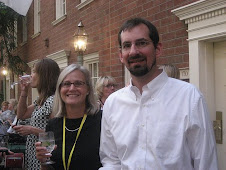
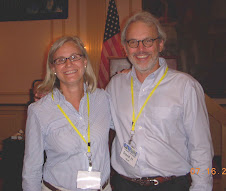
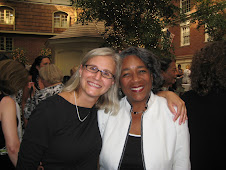
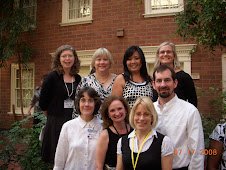
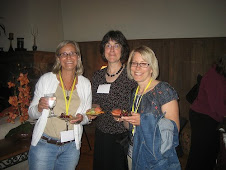


6 comments:
Bain's article for the Village Voice made me think of the documentary "Murder on a Sunday Morning." In May of 2000 in Jacksonville, Florida, a white woman was shot in the head at point blank range in front of her husband. Two hours later, a 15 year old African American teenage boy was arrested for her murder while walking down a nearby street to Blockbuster to get a job application. The husband identified him as the shooter, even though he was at home sleeping at the time of the murder. The documentary follows the court case trying this teenage boy for murder.
It's a pretty powerful documentary that speaks to the racism that our country hasn't been able to shake even in the 21st century.
For more information, you can click here:
http://imdb.com/title/tt0307197/
The McBride article is very engaging. I think the American Lit team should think about using it with his memoir, The Color of Water.
McBride's argument that hip-hop culture speaks to an audience well beyond an urban African American one is intriguing, though I don't think he fully develops the connections more surburan, affluent hip-hopsters have to this culture.
I do think it's valuable that we as teachers try to make some connections of relevance between the curriculum and students' lives (many of the articles Jackie gave us make this point), but I always fear that these attempts will come off as extremely artificial. There are few things that can make my class bust a gut faster than my feeble attempts at trying to recognize and understand hip hop culture!
Rob's last lines made me chuckle because I also get laughed at when I incorporate music into my class since I know nothing about music. Bryonn Bain says that it's okay to let the students know more than the teacher with Hip Hop though. Just like students often know more about technology than the teacher. I plan on using McBride's article in World Lit too in a unit about how music connects everyone in the world. I'm also planning on having an IPod docking station so that students can play a song at passing time and during attendance that reminds them of some of the literature we are studying.
"Murder on a Sunday Morning" is an amazing documentary! I would love to find a place for it in my classroom. Most of our students probably don't believe that a person would confess to a crime he didn't commit...but this young man does! The film illustrates the powerlessness of many people in our society.
As for hip hop...Rob's students may laugh at his attempts, but I don't think students at Edina know much more about hip-hop than most teachers. If they do, they know about the very commercialized rap. There is much more to the culture than what is played on KDWB or KMOJ. I think McBride is talking more about the rhymes that are produced every day by people who never get a record deal. There is a whole genre of "conscious rap," that is full of political, insightful commentary on our world. Analyzing the work of artists like Mos Def, Talib Kweli, Aesop Rock, and Nas, may prove to be as difficult as the poetry analysis that students are more accustomed to in the English classroom. So, Rob's students may laugh initially, but in the end, I think the introduction of hip-hop would open their eyes to the power of the art form.
The more I think about Murder on a Sunday morning, the more I think it would be great for the 10th grade persecution film at the end of the year. Maybe we can get another couple of team members to view it to see what they think.
I agree with what people are saying about hip hop culture, and how attempts at incorporation of hip hop into the classroom can seem artificial at best. I would add, though, that any knowledge of hip hop or hip hop culture goes a long way with the students. I have a couple of choice lines of hip hop that I memorized when I was student teaching, and I'll still drop them on kids once in awhile. I can't believe how much credibility it gives me with some students--they automatically believe I know much more hip hop than I really do, but that's fine with me.
As a side note, do you think it would be possible to get Rob to perform a little impromptu hip hop for our meeting on Friday? I think it could be great team building. What do you think, Rob?
I moved "Murder on a Sunday Morning" to the top of my Netflix queue to preview for the 1oth grade persecution film. The film is not rated, but I'll watch through the eyes of a 15-year-old to see if I catch anything offensive. The film did win the Academy Award for best documentary of 2001.
If we decide to use, Bryonn Bain might just have a Hip Hop song about racial persecution in the criminal justice system. We could even get some criminal defense attorneys in to discuss persecution in the criminal justice system. Heck, with KC's dad, KC's sister-in-law and my husband, we could easily cover all the classes.
Post a Comment